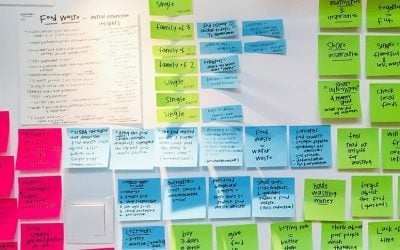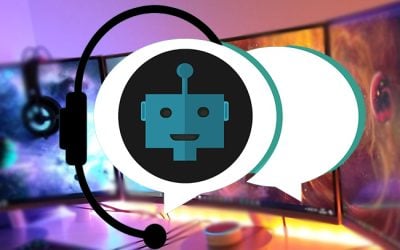Blog
Stay up-to-date on the latest Higher Education, K-12 and Curriculum Design content.
Higher Ed
Adult Learners: Higher Ed Leaders Consider These Points to Build Online Curriculum
Adult learners who enroll in online courses have unique needs. They often have to balance coursework with full-time employment, family responsibilities, and multiple competing interests. With that in mind, colleges, universities, and adult education publishers can make necessary changes to attract and retain adult learners. Therefore, higher ed leaders should consider the following strategies for building an online college curriculum for adult learners that succeed.
Instructional Design: 4 Things Leaders Should Know to Connect Faculty and IDs
Colleges continue to convert more courses to online learning. Classes could be emergency remote learning or re-evaluated curricula. With this transition, some faculty members experience hesitancy, moving classes they taught for many years to online courses. Professors guide their students to the course objectives; they do the teaching. As subject matter experts, these instructors may not understand the complete role of the instructional designer in the teaching and learning process. Instructional designers (IDs) are experts in course design and embed the best practices to produce courses effectively for online learning. IDs realize the differences between face-to-face and online learning. Yet, a disconnect continues to exist between these two groups. College leaders can employ these four points to build a stronger connection between the faculty and instructional designers.
Course Planning: 3 Things to Know for Online Competency-Based Higher Education
As more institutions of higher learning move toward online learning options, they must create course planning that leads to successful student outcomes. Toward that end, utilizing online competency-based higher education (OCBHE) can help achieve these goals. Ideally, successful OCBHE has the following components:
Student learning is active and personalized.
Students learn through various types of instruction and media.
Students experience opportunities to process and apply information in a tailored way.
Learning experiences match real-world contexts where learning might be applied.
Colleges and universities will apply these 3 strategies for successful course planning in a competency-based online learning environment.
5 Points on How Higher-Ed Leaders Can Develop Competency-Based Education
Colleges and university leaders face challenges as college enrollment numbers have dwindled. Many potential learners need to upskill quickly and do not desire to attend a traditional college program. Other students want a degree but lack the time and support to attend college. Other potential students confront barriers like previous college failure or fear they are not college material. Thus, leaders strategize. They develop different modes of instruction like competency-based education. These five points aid higher-ed leaders in developing a competency-based education (CBE) for their colleges.
K-12
5 Ways to Increase Digital Publishing for Spanish Language
Spanish-speaking readers are complex and diverse. Yet, Spanish readers continue to wait for the range of English readers’ choices in digital products. Publishing leaders misunderstand the market when translating English-speaking content into Spanish. Publishing leaders can use these five ways to increase digital publishing products for Spanish language readers.
Experiential Learning: 4 Elements Publishers Can Support
Experiential learning helps students to learn by doing. Thus, as online learning expands, schools must provide options for this type of learning. Students can work in groups, use project-based learning, and experience the arts to learn. Therefore, teachers and school districts can provide various ways to learn. Publishers can consider these four elements when supporting experiential learning for K-12.
K-12 Education: 5 Things Publishers Can Support for Phonics Instruction
Publishing leaders face yet another controversial conundrum – phonics versus balanced literacy instruction. For the last twenty years, providers have pivoted content development from a single text to a series of leveled teaching techniques. Now, educators are under fire for using instructional methods not backed by evidence and research to teach kids how to read. Recent headlines put phonics back in the spotlight as the method for teaching students to read. Again, publishers must rise to the challenge of giving teachers the tools they need in their classroom – as individualized as that can be. Publishers can use these 5 points to support phonics-based instruction for K-12 education.
New Tech: Follow These 5 Methods When Selling Educational Products to School Districts
Districts desire products aligned with standards. Thus, schools demand products to integrate with their learning platforms. Instructors need products that address learner variability and other student needs. Also, these products must be easy to use. Yet, districts cannot afford to invest in technology that teachers do not use. Often, teachers do not have the time and skills to add new tools. So, new tech often gathers dust in storage closets. Providers can increase educators’ adoption rates by ensuring their products support these five methods.
Curriculum Design
Curriculum Development: Creating Learning Goals and Objectives
The importance of clear, concise learning objectives cannot be overstated. Learners need to know what to focus on to learn the content. Still, courses fill curricula that do not have clear learning outcomes. Yet, with a few tweaks, courses and entire curriculums can be an impactful learning experience. Read below about the importance of learning goals and objectives for curriculum development.
Course Design for Higher Ed and K-12: Using a Learner-Centered Framework and Other Methods
College leaders can take a variety of approaches to course design. One method is learning-centered design. This design method focuses on the needs of the students as opposed to a traditional topical approach that focuses on the subject matter itself. To create effective and sustainable courses, designers should apply strategies that lead to successful learner experiences. Therefore, higher educational and K-12 leaders can employ this strategy and others to design effective courses.
Chatbots: K-12 Providers and College Leaders Can Utilize These 5 Features
Artificial intelligence (AI) positively impacts K-12 and college higher-ed institutions across the US, especially with chatbots. Chatbots are AI-powered robots that are programmed to interact with humans conversationally. They answer questions, give feedback, and provide reminders in a way that increases engagement and is available around the clock. LMS designers and CIOs can use the following five features of chatbots to benefit K-12 and higher-ed.
Content Development: 9 Top Features Colleges and Publishers Should Include in their LMS
Most importantly, users who have a personalized learning experience are more likely to use the LMS and continue to progress. Colleges and publishers should provide customized learning paths based on a user’s role, for instance. Students can learn at their own pace, depending on the subject and curriculum. Multiple learning formats are also ideal, such as videos, readings, offline activities, and Q&A forums.












